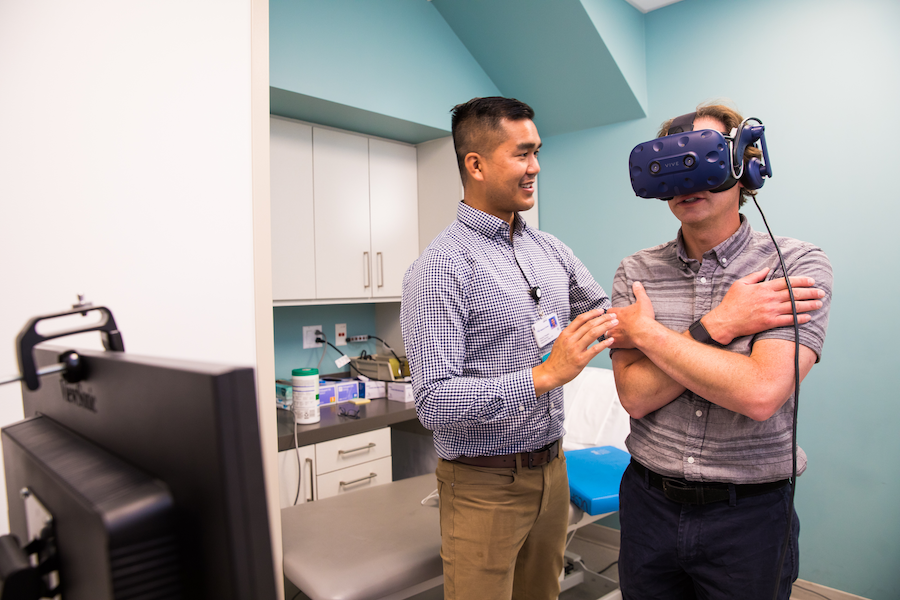
motion sensitivity
Assistant Clinical Professor Alex Dien, PT, DPT, was always fascinated by the concept of identity and its connection to actions. As a neurologic physical therapist, Dr. Dien’s mission extends far beyond helping patients recover from strokes or traumatic brain injuries. It revolves around enabling them to reach milestones and regain their sense of self beyond the labels of “stroke patient” or “TBI survivor.”
“I really enjoy guiding people back to who they aspire to be,” Dr. Dien said. Among the many patients under Dr. Dien’s care, one remarkable case stands out – a 26-year-old who endured a spinal cord injury after a skiing accident involving a cliff jump and a fall over a rock. When this patient first came to the clinic he couldn’t walk, but after undergoing blood flow restriction training and other therapies under the care of Dr. Dien and Dr. Monika Patel, this individual regained his ability to walk independently and has even been able to jog.
Dr. Dien’s approach extends beyond physical recovery; he places great emphasis on emotional healing. “I’m not trained as a mental health practitioner, but I understand the power of achieving goals and reaching milestones,” Dr. Dien said. “Helping patients recognize that they can accomplish things that they didn’t think were possible is profoundly meaningful.” Since joining UCSF in 2019, Dr. Dien has worked closely with colleagues to design comprehensive care plans for individuals and played an integral role in establishing the UCSF Community Rehabilitation Clinic. His dedication to his clinical work and educating the next generation of physical therapists through teaching classes in the DPT program and mentoring neurologic residents has remained a constant.
I really enjoy guiding people back to who they aspire to be.
Alex Dien, PT, DPT
Assistant Clinical Professor
In addition to his clinical and teaching roles, Dr. Dien is engaged in research. One of his recent studies, conducted in collaboration with the Otolaryngology Department’s Dr. Jeffrey Sharon, examines the impact of a virtual reality system on patients experiencing dizziness. Using immersive technology developed by the company Virtualis, patients are encouraged to move their heads as part of habituation or desensitization exercises. The study has shown promising results, particularly for individuals with visual motion sensitivity.
“My ultimate goal is to ensure that every patient diagnosed with a neurological condition can access exceptional care,” Dr. Dien said. “As students embark on their professional journeys, whether they choose to remain here, return to their home states or pursue diverse areas of practice, my hope is that even if they do not specialize in neurology, they will possess the skills to effectively collaborate with patients facing neurological challenges.”
